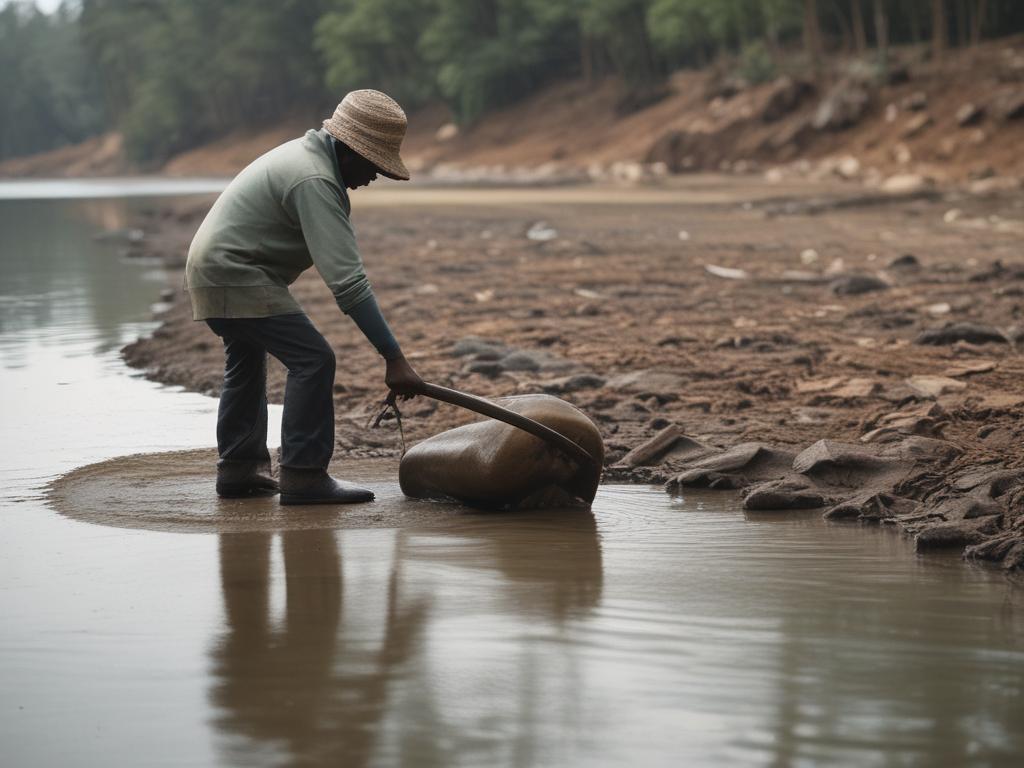
Galamsey, the term used to describe illegal small-scale mining activities in Ghana, poses a severe threat to the country’s vital water resources. As these unregulated operations expand, they unleash a cascade of environmental destruction that jeopardizes the health of rivers, lakes, and the communities that depend on them. The pressing crisis surrounding galamsey not only endangers aquatic ecosystems but also undermines the very foundation of sustainable development in Ghana. As concerns mount, it is crucial to explore the detrimental effects of illegal mining on our precious water bodies and understand the urgent need for collective action to safeguard them.
In this blog post, we will dive into the alarming consequences of galamsey on Ghana's water resources, highlighting how pollution, sedimentation, and habitat destruction have severe impacts on both the environment and human health. We will also address the pressing call to action needed from stakeholders and communities alike to combat this illegal mining menace effectively. By taking proactive steps to protect our rivers and lakes, we can work towards a more sustainable future for Ghana’s water bodies and the generations to come.
Understanding galamsey: The illegal mining crisis threatening Ghana's water resources
Galamsey, a term derived from the Ghanaian phrase gather them and sell, refers to the illegal and unregulated mining activities that have proliferated across the nation. These operations predominantly target gold deposits but often extend to other valuable minerals, leading to widespread environmental degradation. The allure of quick profits drives both locals and foreign investors to engage in galamsey, often disregarding the severe consequences it has on Ghana's water resources. This underground economy operates outside the legal framework, posing significant challenges for government regulation and enforcement efforts.
The illegal nature of galamsey contributes to a vicious cycle of exploitation and environmental harm. Miners employ crude methods, such as the use of toxic chemicals like mercury and cyanide, which contaminate rivers and lakes. When these pollutants enter the water systems, they have far-reaching effects, not only affecting aquatic life but also jeopardizing the health of nearby communities. As these practices continue unchecked, the implications for Ghana's vital water resources become increasingly dire, underscoring the urgent need to address the galamsey crisis for the sake of both the environment and public health.
Explore the detrimental effects of illegal mining on our rivers and lakes
Illegal mining, commonly known as galamsey, poses severe threats to Ghana's water bodies. Activities associated with galamsey lead to widespread pollution as miners often use harmful chemicals like mercury and cyanide to extract gold. These hazardous substances seep into local rivers and lakes, contaminating the water supply and putting both aquatic life and human health at risk. When the water bodies become tainted, not only does it lead to the loss of biodiversity, but it also disrupts the livelihoods of communities that depend on fishing and agriculture for sustenance.
Moreover, the physical devastation caused by galamsey leaves rivers and lakes vulnerable to erosion and sedimentation. Miners remove vegetation and soil from riverbanks, resulting in increased runoff and siltation, which further degrades water quality. This disruption affects the hydrological cycle, leading to fluctuating water levels that can exacerbate flooding or drought conditions. The urgent need to address these issues is evident; without immediate intervention, Ghana's once-thriving water ecosystems risk irreversible damage, threatening both natural resources and the welfare of millions who rely on them.
The urgent need for action: Protecting Ghana's water bodies from galamsey devastation
To safeguard Ghana's water resources, immediate and decisive action is essential. Communities impacted by galamsey must unite, pushing for stricter enforcement of mining regulations. Government agencies must collaborate with environmental organizations to devise comprehensive strategies that prioritize the rehabilitation of damaged ecosystems. Education plays a crucial role; empowering local populations with knowledge about the effects of illegal mining will foster a culture of environmental stewardship. By engaging stakeholders at all levels, from miners to policy-makers, Ghana can mobilize concerted efforts to combat the galamsey crisis effectively.
Moreover, innovative solutions such as sustainable mining practices need to be explored to balance economic needs with environmental preservation. Investment in alternative livelihoods for those affected by the loss of traditional mining jobs can reduce dependence on illegal activities. While the damage caused by galamsey to rivers and lakes is significant, proactive measures can help restore and protect these vital resources. By prioritizing sustainable development and enhancing enforcement mechanisms, Ghana can secure its water bodies for future generations, ensuring both ecological health and community well-being.